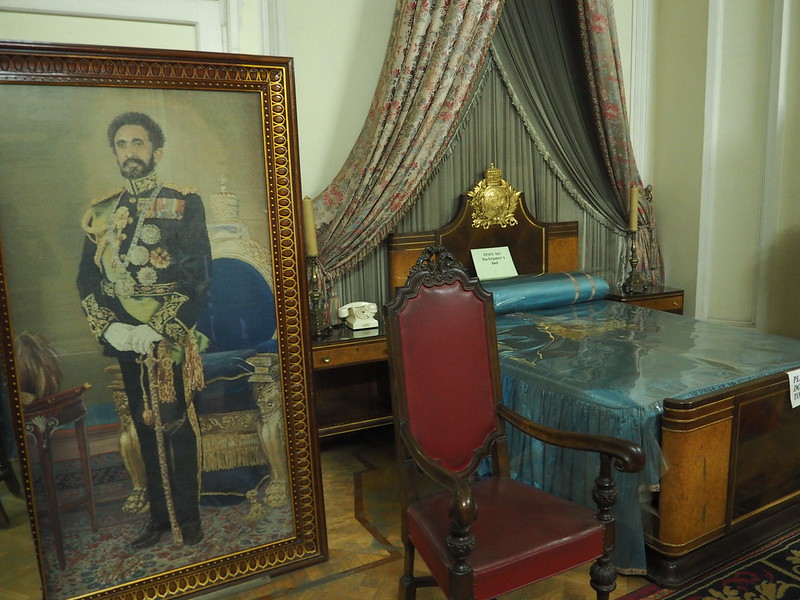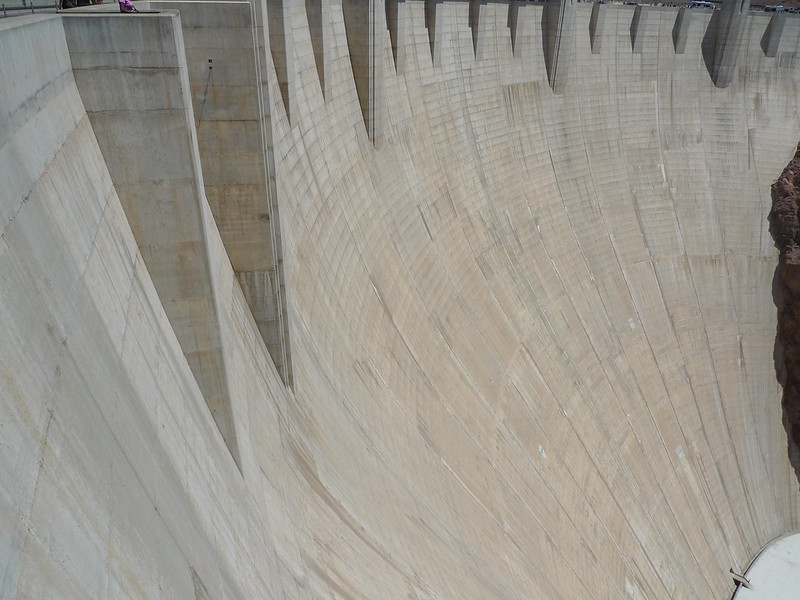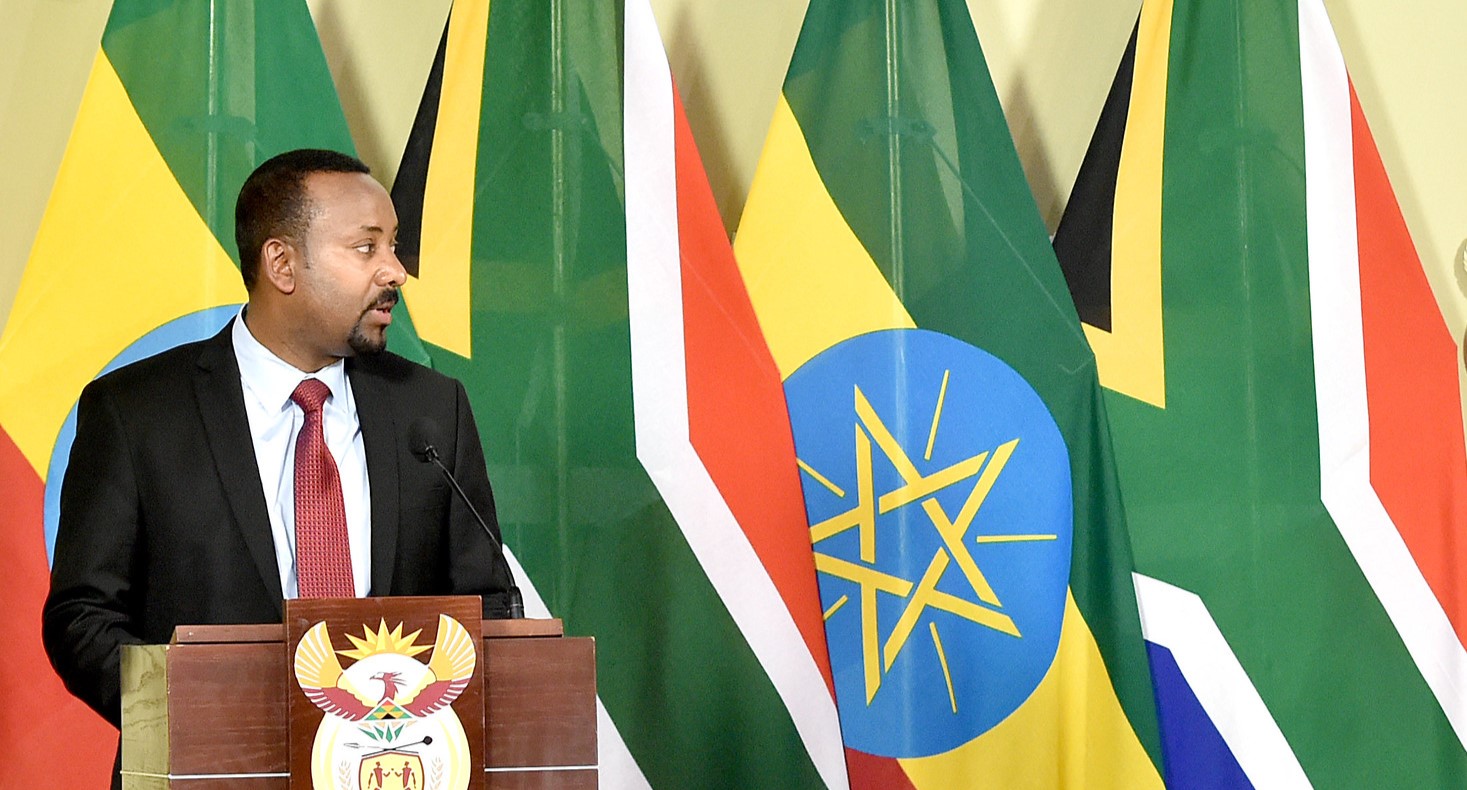Despite the initial optimism surrounding the Pretoria Peace Agreement, the Ethiopian region of Tigray finds itself ensnared by unfulfilled promises and ongoing suffering. The challenges facing Tigray include humanitarian crises, constitutional chaos resulting from occupation, violations of human rights, and the international community’s failure to take decisive action, writes Batseba Kassahun.
From 2020 to 2022, a genocidal war was fought in Tigray between the federal Ethiopian National Defense Force (ENDF) and the Tigray People’s Liberation Front (TPLF). Additional armed forces from Eritrea and the Amhara region have fought alongside the ENDF in the genocide against Tigrayans. The war has exacted a devastating toll, with hundreds of thousands of casualties, over two million individuals displaced, and the spectre of famine looming. Atrocities abounded, documented by independent investigations by the International Commission of Human Rights Experts on Ethiopia.
The Pretoria Peace Agreement emerged as a beacon of hope, promising an end to the war and the dawn of a new era of peace and stability. Signed under the auspices of the African Union (AU) and endorsed by both the Tigray People’s Liberation Front (TPLF) and the Ethiopian government, it was welcomed as a significant step towards peace by the people of Tigray who rested from ground and aerial bombardment briefly, not to mention massive human rights and humanitarian law violations. However, the promises of peace gave way to a harsh reality of broken commitments and lingering suffering.
At the heart of the Pretoria Agreement lay three pillars intended to be the groundwork for peace: unhindered humanitarian access to Tigray, the restoration of constitutional order, and the protection of fundamental human rights. These pillars were envisioned as the scaffolding upon which a new, peaceful Tigray could be built. However, as the months passed, these pillars began to crumble under the weight of political expediency, bureaucratic hurdles, and a lack of genuine commitment.
Humanitarian crisis
In Tigray, the scars of the war run deep. Families are struggling to feed themselves as crops wither in parched fields. Reports of children perishing from starvation send shivers through the region, echoing the horrors of past famines. With millions in need of aid, the need to address Tigray’s hunger crisis has never been more pressing.
Yet, despite provisions within the Pretoria Agreement guaranteeing unrestricted humanitarian access, 40 per cent of Tigray remain cut off from vital aid. Malnutrition and disease spread unchecked, and famine looms. The government of Ethiopia, instead of assuring humanitarian aid is obstructing aid.
The government of Ethiopia denies that there is a looming famine, and has politicised cries for help from the Regional Administration. Meanwhile, the international community watches on as lives hang in the balance. Even when aid arrives, reports of diversion and exploitation emerge. Rather than reaching the vulnerable, aid was misused for personal gain, perpetuating a cycle of suffering and mistrust.
Constitutional chaos: Occupation and disenfranchisement
The promise of restoring constitutional order in Tigray has been marred despite the Agreement’s provisions that the territorial integrity of Tigray will be respected. Article 8.2 of the Pretoria Peace Agreement under Article 8, International Boundaries and Federal Facilities provides, “The ENDF (Ethiopian National Defense Force) shall safeguard the sovereignty, territorial integrity, and security of the country from foreign incursion and ensure that there will be no provocation or incursion from either side of the border.” Against this provision, Eritrea has forcefully and unconstitutionally occupied areas of Tigray.
Further, Article 2.d of the Nairobi Declaration, requires the “withdrawal of foreign and non-ENDF forces from the region.” Yet, both Eritrean and Amhara forces remain in Tigray. While the international community is calling for the disarmament of the Tigray Defense Force, both the Pretoria Agreement and the Nairobi Declaration require this to be done alongside the withdrawal of foreign and non-ENDF forces. When 45 per cent of Tigray is occupied by such forces, disarmament should not be called upon rather than withdrawal.
Amhara and Eritrea Forces who collaborated with the Federal Government during the genocidal war continue to forcefully and unconstitutionally occupy Tigrayan lands. They must be accountable for injustices done, and not continue to encroach on Tigrayan land. These forces, in blatant violation of international law, have seized control of Tigrayan territory and continue to subject its inhabitants to systematic ethnic cleansing and egregious human rights abuses.
Thus, these forces continue to subject the Tigrayan people to immense suffering. Eritrean troops and Amhara Forces continue to exert influence over significant swathes of Tigray, exacerbating tensions and undermining efforts to establish governance and stability. The continued occupation deepens divisions within the region. Further, due to the occupation of these Tigrayan lands and the accompanying human rights abuses, Tigrayans continue to be forcibly displaced adding to their immense suffering.
Violations of human rights
The situation in Ethiopia regarding unlawful detentions is deeply concerning, particularly in Tigray. Artists who were attempting to raise funds for famine relief in Tigray have been unjustly detained, stifling their ability to contribute to a cause desperately in need of support. In 2023, at an Ashenda event (an annual Tigrayan festival) attendees in Addis Ababa were unlawfully detained, underscoring a broader pattern of repression, where even peaceful gatherings are met with heavy-handed tactics. The recent mass arrests of Tigrayans in Addis Ababa has exacerbated tensions and sown further discord in an already volatile situation. These actions not only violate basic human rights but also hinder efforts to foster dialogue and sustainability in Ethiopia.
The genocidal war in Tigray has inflicted immense suffering, with reports of widespread atrocities. The Pretoria Peace Agreement sought to safeguard the rights of Tigrayans, recognising that violations of fundamental human rights not only impact the individual but also exacerbate ethnic tensions and deepen divisions within Ethiopian society. Such actions sow further discord and erode trust, making meaningful dialogue and reconciliation increasingly challenging.
By violating basic human rights and stifling dissent, the Ethiopian government has undermined the foundations of sustainable peace. Without accountability for these abuses and genuine efforts to address grievances, the cycle of violence will persist.
International inaction
Despite mounting evidence of human rights abuses and atrocities, the international community has failed to take decisive action to address the crisis in Tigray. Perpetrators continue to act with impunity, prolonging the suffering of Tigrayans and undermining faith in global justice mechanisms.
It is imperative that the international community move beyond rhetoric and take concrete steps to enforce the commitments outlined in the Pretoria Agreement. Unrestricted humanitarian access, respect for human rights, and the restoration of constitutional order are not mere aspirations but essential prerequisites for alleviating the suffering of Tigray’s people and laying the foundation for sustainable peace.
Tigray’s struggle for peace and justice is a poignant reminder of the human cost of conflict and the resilience of the human spirit. Despite facing immense adversity, the people of Tigray continue to persevere with unwavering determination. It is incumbent upon the international community to heed their calls for justice and take decisive action to address the root causes of their suffering. Only through concerted efforts and genuine commitment can the shattered dreams of Tigray be reconstructed, and the promise of peace and justice be realised.
Photo credit: Kris Fricke used with permission CC BY-NC-ND 2.0 DEED






A good summary and analyses of the current situation in Ethiopia and the genocide that was committed against Tigrayans by the Ethiopian Government on its own people with the support and active participation of the Eritrean government and Amhara militias.
This article showed a tip off the iceberg. It’s about a year and half that signed the Pretoria peace agreement b/n both parties e.i TPLF and 🇪🇹‘n government. However , Tigray and it’s people are still suffering. Particularly, the Ethiopian government has lack of commitments to end this civil war and 🇪🇷‘n and 🇪🇹‘n made TigrayFamine, rather using it as tactics and expanding conflicts to other regions like Amahara and Oromya within the country and neighbouring countries instead. The international community should act properly now, before it is too late.
Thank you Batseba for being the voice for the voiceless living under structural repression, partial siege, exclusion, occupation, manmade and natural catastrophies. Well written.
Pretoria Peace Agreement fails to end suffering in Tigray due to ongoing humanitarian crises, constitutional chaos, and rights violations.